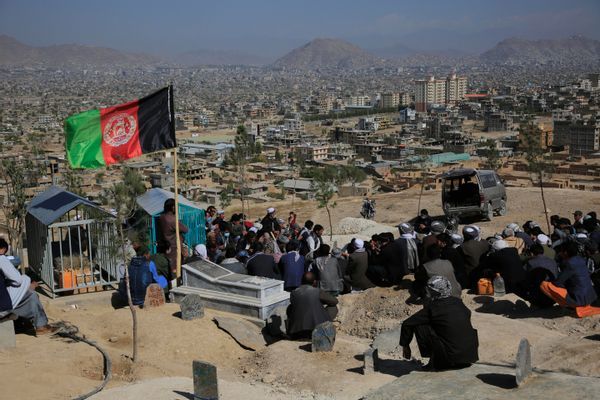Hours after the Taliban claimed to be in control of 85% of Afghanistan, the World Health Organization has voiced concern over the healthcare access in the country. This comes amid a sweeping Taliban offensive as US troops pull out of the country.
“It’s a terribly concerning situation, and it’s very fluid right now,” said Rick Brennan, the WHO emergencies director in the Eastern Mediterranean region, AFP reported,
“We are clearly concerned about the decline in the access to healthcare,” he added.
Also Read: Good, bad and the ugly: The story of war-torn Afghanistan
On Friday, at a press conference in Moscow, Taliban negotiator Shahabuddin Delawar said Taliban now controls 85 percent of Afghanistan’s territory, including some 250 of the country’s 398 districts.
He also said that there was no agreement with the United States for the Taliban not to attack administrative centres remaining under Kabul’s control.
“These are our internal affairs,” Delawar said.
On Thursday, US President Joe Biden delivered a vehement defense of his decision of withdrawing troops from Afghanistan.
“I will not send another generation of Americans to war in Afghanistan with no reasonable expectation of achieving a different outcome,” Biden said.
Also Read: Didn’t go to Afghan to nation-build: Joe Biden to end US army mission on Aug 31
Meanwhile, Taliban said fighters had seized the border town of Islam Qala — completing an arc of territory from the Iranian border to the frontier with China.
Brennan said a number of healthcare staff had left health facilities over security fears, but that some had also opted to return.
“It’s a mixed picture right now,” he said.
Brennan said the WHO did not have direct communications and dialogue with the Taliban. But he said the UN agency had received requests from some districts that had been taken over by the Taliban for it “to stay to continue the continuity of health services.”
He stressed that the WHO, and especially its polio vaccination channel, had managed to stay and deliver services in difficult conditions in the past.
“I think that is going to provide us a platform to continue to provide services, but … things can change on a daily basis and we are clearly very concerned,” he said.




